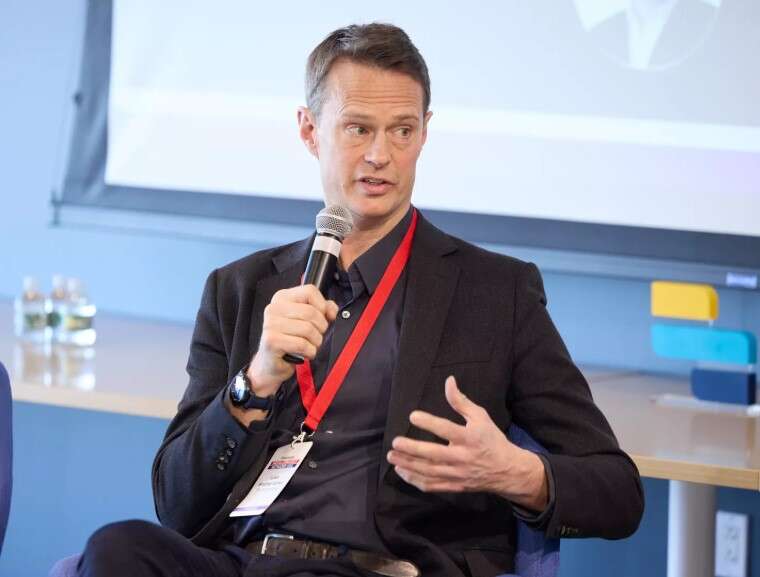
President of The Economist Luke Bradley-Jones has revealed how he plans to steer the 183-year-old title through the era of generative AI.
The former Disney+ general manager for EMEA joined The Economist as president and managing director in the summer of 2024.
The UK-based global newsbrand reported revenue of £367m (down 3%) for 2024 and operating profit of £47.4m (up 12%). It has total subscribers of 1.2 million, some 800,000 of which are digital.
Speaking at Press Gazette’s Media Strategy Network event in New York in March, Bradley-Jones shared his thoughts around reader revenue strategies and defending the title from the threat posed by generative AI companies.
He said: “You have to really emotionally commit to being a subscription-first business, if that’s what you’re trying to be. I think many businesses that had a very significant advertising revenue stream have tried to hold on to that, and that’s made it harder to build a subscription business.
“Then you have to work out what are your areas of real differentiation. It’s a very, very competitive market out there. I come from an entertainment streaming world where you had exclusive shows and movies, and that’s how you drove differentiation.”
For The Economist, he said, that differentiation comes not through news reporting, but by providing in-depth analysis in the areas it has defined as core strengths.
“Today, we’re all reporting the same, quite extraordinary, news. But we don’t have a monopoly on that, so we did a lot of research to really understand what our points of differentiation were versus our competition, and that brought us to focusing on three or four areas of expertise.
“One is geopolitics, where we really think that we have the global perspective that joins the dots between the macro and geopolitical tectonic plate shifting that’s happening.
“The second is defence, where we have a very, very expert reporting team with a background in defence policy. And we’ve had people on the ground in Kyiv and in the Middle East for a long time who deeply understand the conflict and are really tracking the defence technologies that are being used in those wars.
“The third is tech and AI. We reported the Deepseek story a week before the global news story broke.
“The final one is our hinterland of economics and business.
“We have science, we have culture, but those four areas are the areas where we really think we’ve got extra depth and expertise and reportage.”
He said The Economist has invested in marketing to ensure readers come to the title for its expertise in these topics and said they were developing new content for premium products aimed at their engaged subscribers in these areas.
The Economist Group has not signed any content licensing deals with generative AI companies and it is also yet to join any of the lawsuits brought over content theft.
Bradley-Jones said his title’s focus is instead around ensuring the product remains a sufficiently premium experience to keep competition from AI-written answer engines at bay.
He said: “The LLM and AI ecology is evolving very, very quickly, and it’s going to be extremely hard for any brand to get a foothold within that ecology. Actually the most important thing is to work out how you must survive outside of that ecology.
“Yes, we can leverage AI to improve our product and improve editorial workflow using loads of AI in our newsroom, as well as our product personalisation, our marketing and customer service. It’s a friend to us in that regard.
“But then beyond that, we see our strategy as what I call offensive defence, where we believe we have a moat which exists already and we need to keep on building and making ever stronger. And that’s through spending more on brand marketing, so our brand really stands out.
“We’re spending more on products so our experience is one that customers want to enjoy and use directly, rather than getting a kind of a diluted version of that through an AI aggregator.
“I’ve talked about it with a lot of my peers and people taking different approaches. Our approach is very much how do we build that moat to make sure that we are a brand that our customers want to keep using directly, even when they’ve got an agent serving many of their needs through a single AI interface.”
Email pged@pressgazette.co.uk to point out mistakes, provide story tips or send in a letter for publication on our "Letters Page" blog
